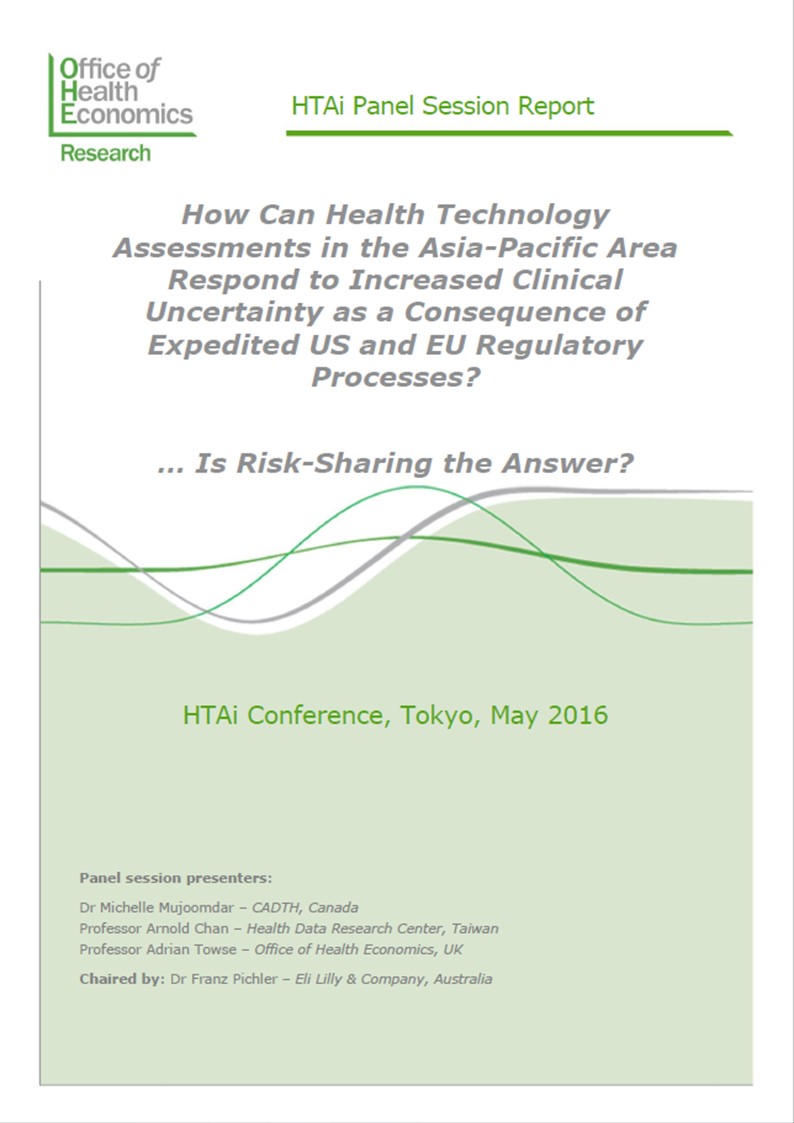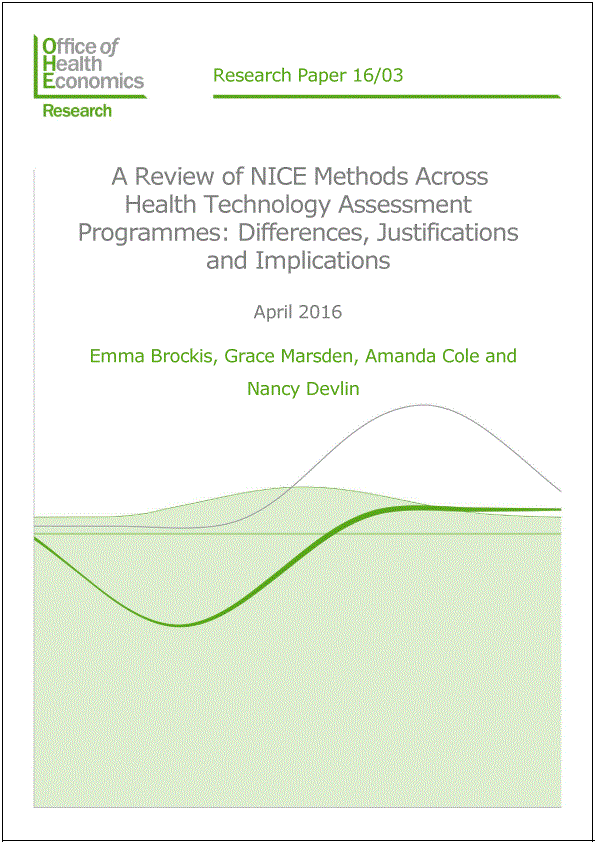Sign up to our newsletter Subscribe
How Can Health Technology Assessments in the Asia-Pacific Area Respond to Increased Clinical Uncertainty as a Consequence of Expedited US and EU Regulatory Processes?

Sign up to our newsletter Subscribe


This Research Paper reports on a literature review of trials using PFS as a surrogate for OS in oncology between 2012 and 2016; a workshop and interviews involving people from a regulatory agency (EMA) a “payer” organisation (NICE), academics, and from the member organisations comprising POI; and critiques of statistical modelling and economic analysis approaches to surrogacy.
Trials of drugs for cancer treatment may cause a reduction in tumour size for a period of time but might not extend life, or do so by a very small amount. Alternatively, there may be only a slight reduction in tumour size but a sustained response that allows for a long extension of life. It is the change in length of life or overall survival (OS) that is regarded as the most important outcome, but this in-formation is often not available for some years. However, if the length of time that the tumour is not growing (called progression-free survival, or PFS) is highly correlated with OS, information about the size of OS can be inferred using PFS. This may allow an effective drug to come onto the market sooner, which is in the interests of both patients and drug manufacturers. PFS is thus an example of what is known as a surrogate endpoint. The question of interest is thus whether the advantages of faster adoption of the drug outweigh the disadvantage that the surrogate outcome might not measure OS sufficiently accurately.
A revised version of this paper has been published in the International Journal of Technology Assessment in Health Care and can be downloaded from: https://www.cambridge.org/core/journals/international-journal-of-technology-assessment-in-health-care/article/challenges-and-methodologies-in-using-progression-free-survival-as-a-surrogate-for-overall-survival-in-oncology/41F9683F2C5DFBE816373A3C5EFC83FE
Please cite as: Hernandez-Villafuerte, K., Fischer, A., and Latimer, N. 2018. Challenges and Methodologies in Using Progression Free Survival as a Surrogate for Overall Survival in Oncology. International Journal of Technology Assessment in Health Care, 34(3), pp.300-316.
An error has occurred, please try again later.
This website uses cookies so that we can provide you with the best user experience possible. Cookie information is stored in your browser and performs functions such as recognising you when you return to our website and helping our team to understand which sections of the website you find most interesting and useful.
Strictly Necessary Cookie should be enabled at all times so that we can save your preferences for cookie settings.
If you disable this cookie, we will not be able to save your preferences. This means that every time you visit this website you will need to enable or disable cookies again.
This website uses Google Analytics to collect anonymous information such as the number of visitors to the site, and the most popular pages.
Keeping this cookie enabled helps us to improve our website.
Please enable Strictly Necessary Cookies first so that we can save your preferences!